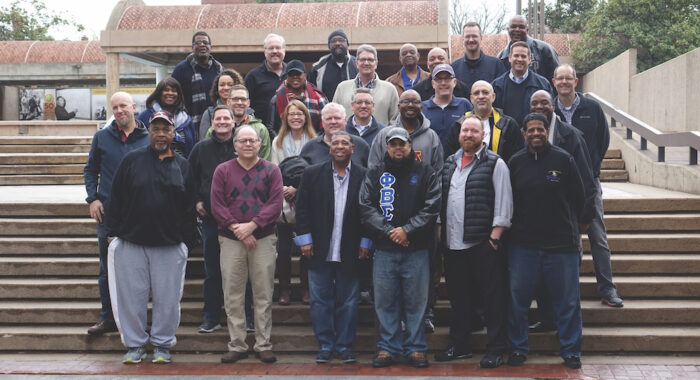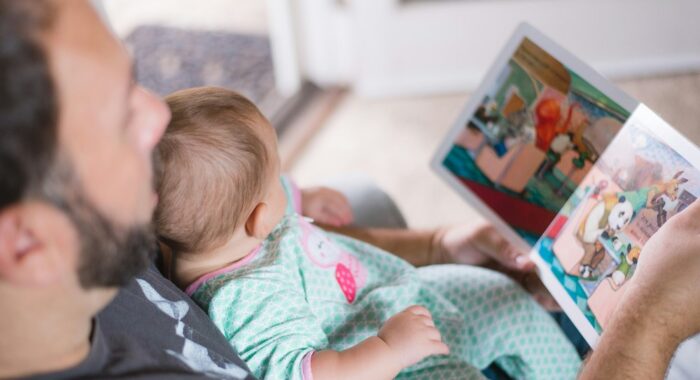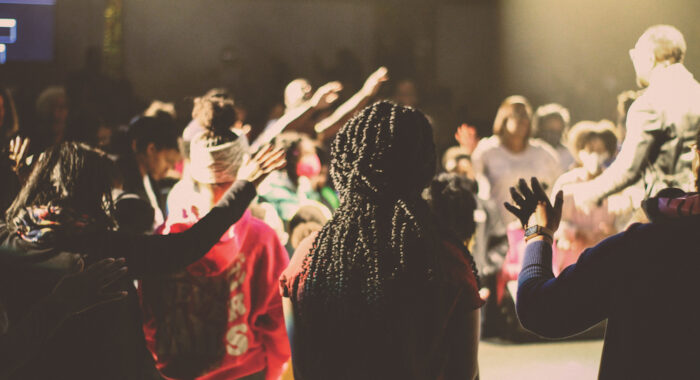For Daniel Nehrbass and his team at Nightlight Christian Adoptions, adoption and foster care are unequivocally gospel imperatives. “Not every agency is motivated by the Great Commission and the Great Commandment. We see adoption and foster care as answers to both,” he said.
During the 1950s, approximately 8 percent of all pregnancies resulted in adoption. A group of churches in Whittier, California, who were members of the National Association of Evangelicals, recognized the need for more Christian adoptive families. As a result, in 1959 these churches came together to create Nightlight Christian Adoptions in a concerted effort to identify and match Christian families to children needing adoption. Since that time, Nightlight has expanded their services to include international adoptions, foster care placements and embryo adoptions. Nehrbass has served as Nightlight’s president for the past 11 years.
Nehrbass notes that there has been a decline in domestic adoptions over the past several decades. However, contrary to what one might assume, abortion is not the only reason why domestic adoption has declined. One of the greatest culprits is the stigma against birth moms placing their babies for adoption.
According to a new study by the National Council for Adoption, the percentage of birth mothers who have experienced some degree of stigma by the time they placed their babies for adoption has risen from 70 percent to more than 90 percent over the past 50 years. Nehrbass suggests that partly as a result of this stigma, the decline in domestic adoptions has been matched by an increase in the number of foster care placements as many of these children are born into at-risk family situations who are unable to adequately provide for them.
The Language Scripture Uses
Having served as a pastor for 17 years prior to joining Nightlight, Nehrbass is passionate about educating pastors and their congregations to better understand and embrace adoption and foster care as gospel-centered ministry. He says that one of the most significant obstacles to securing time to share about Nightlight’s work in churches is the perception that adoption is a for-profit business that caters mainly to rich couples.
Nehrbass’ response is to emphasize that adoption is paradigmatic in Scripture for salvation. “Adoption isn’t just an analogy for the gospel; it is the language Scripture uses to describe how we are made part of God’s family,” he said.
When it comes to adoption, the Church needs to eliminate the stigma for birth mothers who do not have the support needed to raise a child. “We need to do a better job of telling the stories of women who’ve placed their children for adoption in order to normalize it,” Nehrbass says.
To that end, Nightlight has utilized the video series “I Am That Kid,” a resource designed to normalize adoption for birth parents and help them expand their imagination for what is possible. Nightlight is also developing its own curriculum to amplify these stories as a resource for pastors and congregations.
Foster Care As a Calling
In addition to the anti-adoption stigma toward birth mothers and misconceptions within churches, Nightlight also faces challenges in convincing Christians to see foster care as a calling. Nehrbass describes a typical scenario in which a pastor preaches about foster care on Sunday, and Monday morning Nightlight receives several phone calls from members of that congregation expressing their desire to adopt healthy infants. There is a disconnect between the need for Christian foster families and what families are willing to do.
Nehrbass readily acknowledges that fostering is hard. When they were in their 20s, Nehrbass and his wife fostered two children whom they eventually adopted, but it was very challenging. Families already have a certain level of stress with which they are functioning. The integration of a foster child often increases that stress, because he/she introduces a new dynamic into the family system. Nehrbass longs to see the Church better resourced to not only advocate effectively for foster care, but to support its members in their foster
care journeys.
A Neglected Ministry
Finally, Nehrbass believes there needs to be more conversations in the Church around embryo adoption. “I don’t think most pastors are aware that they have members of their church who are living with guilt over the embryos they have in storage for which they have no plan. This is a neglected ministry, as many pastors are unequipped to help their congregants navigate the complicated emotions involved. Members of your church know that they have human beings frozen with a fate that is uncertain, but for which they are responsible. The Church can alleviate the guilt and provide solutions by normalizing adoption of embryos, in addition to the adoption and foster care of post-birth children,” he said.
Nightlight’s unique embryo adoption service is known as their Snowflakes program, which launched in 1997 as the world’s first embryo adoption program. Before Snowflakes, embryo donation was anonymous, so no home study was needed, there was no matching with families and no openness in the process.
Nehrbass notes, “We knew that in order for more people to offer their embryos for donation, families needed greater confidence to place their embryos for adoption.”
Nightlight implements a holistic approach through Snowflakes, which consists of three core components: a home study; matching by a doctor; and an open process in which families meet each other. In this program, Nightlight implements social work best practices. By doing so, many couples choose to place their embryos with Nightlight. Whereas a typical clinic may have five sets of embryos, Nightlight is always working with several hundred families.
Nehrbass shares that Nightlight’s long-standing membership in the NAE has helped to legitimize adoption and foster care as Christian ministry and an act of obedience to God. Another way in which NAE membership has been valuable is by signaling Nightlight’s solidly evangelical identity as they network with other groups. The NAE is grateful for the faithfulness of organizations like Nightlight who persevere in their mission to bring the good news of Jesus to every aspect of human existence.
Watch Kelly Rosati's presentation at Flourish on adoption & foster care ![Arrow]()
Since July 2020, Cullen Rodgers-Gates has been serving as the director of development and membership at the National Association of Evangelicals. In this role, he established and leads the NAE’s development program while also engaging with a growing community of active members. Prior to his work at the NAE, Rodgers-Gates spent 20 years in international service-learning and nonprofit leadership, including six years as executive director of Congo Initiative USA. Rodgers-Gates holds two degrees from Wheaton College: a bachelor’s degree in philosophy and a master’s degree in historical and systematic theology.




 View All Articles
View All Articles 






























